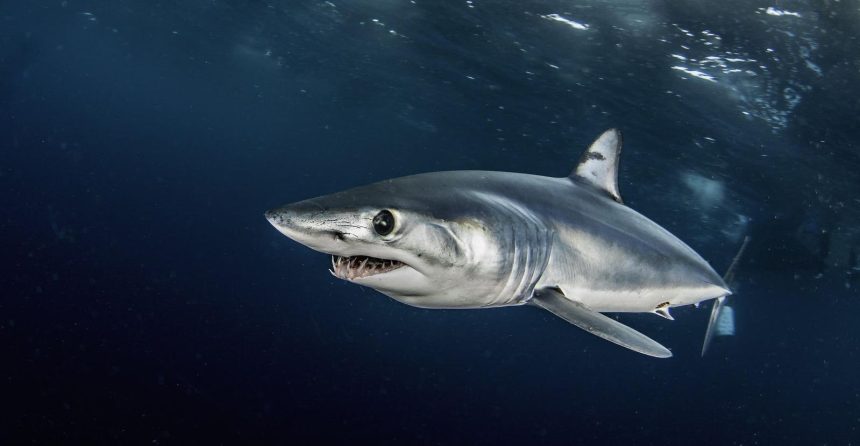The successful tagging and tracking of a shortfin mako shark in the Mediterranean Sea represents a significant leap forward in the conservation efforts for this critically endangered species. This groundbreaking achievement, a first for the region, provides invaluable insights into the movement patterns and habitat preferences of these apex predators, crucial information for developing effective conservation strategies. The shortfin mako, renowned for its remarkable speed and streamlined physique, plays a vital role in maintaining the delicate balance of marine ecosystems by regulating prey populations. However, their numbers have been drastically reduced due to overfishing, often as unintentional bycatch in commercial fishing operations. This alarming decline underscores the urgent need for comprehensive conservation measures to protect these magnificent creatures and the vital role they play in the health of our oceans.
The tagging initiative was part of the White Shark Chase project, led by Virginia Tech assistant professor Francesco Ferretti. While the primary focus of the project was white sharks, the serendipitous encounter with a young shortfin mako presented a unique opportunity that the research team seized upon. Recognizing the rarity of such an encounter, the team decided to tag the young shark with a pop-off archival tag, a sophisticated electronic device designed to collect a wealth of data on the shark’s movements and surrounding environment. This data includes information on water temperature, depth, and ambient light levels, providing a comprehensive picture of the shark’s behavior and preferred habitats. The tag, programmed to detach after a predetermined period or upon reaching a depth of 5,900 feet, transmits the collected data via satellite, offering researchers a treasure trove of information about the shark’s journey.
Over a period of just 54 days, the tagged mako shark traversed over 750 miles, an astonishing distance for a shark estimated to be only one or two years old. This remarkable feat challenges the conventional conservation approach of focusing solely on protecting nursery areas, highlighting the need for broader strategies that encompass the extensive migratory patterns of these young sharks. The data collected reveals not only the distance covered but also provides a three-dimensional perspective of the shark’s movements, offering critical insights for designing conservation measures tailored to their specific behaviors and needs. Understanding the intricacies of their movement patterns, including the depths they inhabit and the connections between different habitats, is essential for developing effective conservation plans and ensuring the long-term survival of this critically endangered species.
The implications of this research extend beyond the immediate conservation of shortfin mako sharks. By gaining a deeper understanding of their movements and ecological role, scientists can better comprehend the intricate web of life within our oceans and the interconnectedness of various species. Healthy shark populations are indicative of a thriving marine ecosystem, which in turn supports a multitude of human activities, from fishing and tourism to climate regulation and oxygen production. Therefore, protecting sharks and their habitats ultimately benefits human societies in countless ways, emphasizing the importance of continued research and conservation efforts. The data collected from this single tagged shark serves as a crucial foundation for future studies and underscores the need for more extensive tagging efforts to gain a more comprehensive understanding of the species’ movements and ecological significance.
This groundbreaking research initiative represents a collaborative effort involving scientists from renowned institutions across the globe, including the Polytechnic University of Marche, Stanford University, Oregon State University, and Stazione Zoologica Anton Dohrn. The project received funding from various organizations, including The Explorers Club, Discovery Channel, and Sharkproject, highlighting the global recognition of the importance of protecting these remarkable creatures. This international collaboration underscores the shared commitment to preserving marine biodiversity and the critical role that scientific research plays in achieving this goal. The success of this tagging project not only provides valuable data but also inspires hope for the future of shortfin mako sharks and the overall health of our oceans.
The tagging of this young mako shark in the Mediterranean signifies a major milestone in marine conservation, providing critical data that will inform future conservation strategies. While this single tagging event provides a strong starting point, it is just the beginning of a long-term effort to understand and protect these magnificent creatures. Continued research, expanded tagging programs, and international collaboration are essential for unraveling the complexities of their behavior, movements, and ecological role. The knowledge gained from such endeavors will be instrumental in developing effective conservation measures, ensuring the survival of shortfin mako sharks and the health of the marine ecosystems they inhabit. This initial success serves as a beacon of hope, inspiring further research and fostering global collaborations to safeguard these apex predators and the vital role they play in the intricate balance of our oceans.



